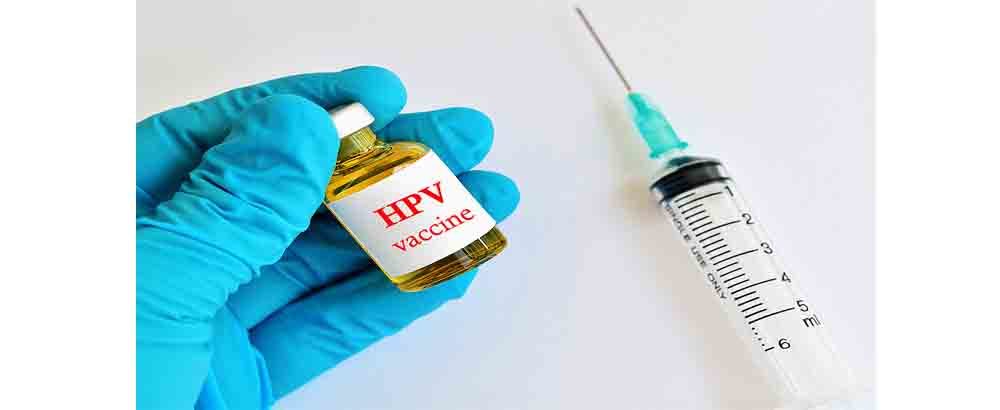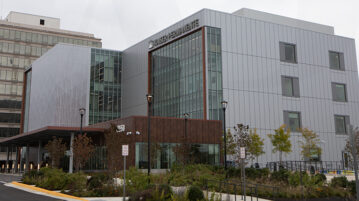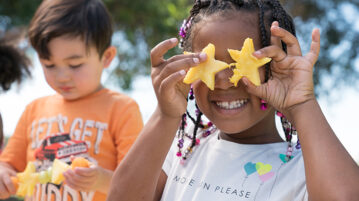By Permanente Medical Staff
Immunizations are a standard part of every child’s well-child visit to the pediatrician – and that’s because they are vital for protecting against potential childhood killers such as diphtheria, polio, and measles. About a decade ago, pediatricians added a new vaccine to the arsenal: the HPV vaccine. The vaccine is effective in preventing against most types of this common, sexually-transmitted infection, which is linked to many types of cancer.
Fortunately for families, the dosing schedule for the HPV vaccine is now easier than before.
Brent Thibodeaux, MD, Chief of MAPMG’s Northern Virginia Pediatrics Service, explains the new schedule and tells why the HPV vaccine is so crucial for protecting our children against future sexually-transmitted infections and cancer.
What is HPV?
The human papilloma virus is the most common sexually transmitted infection in the United States. It has been linked to vaginal, cervical, and vulvar cancer in females, penile cancer in males, and anal and oropharyngeal cancer in both sexes. It also causes virtually all cases of genital warts. Approximately 79 million people are currently infected, with millions of new infections occurring annually. The virus spreads via skin-to-skin contact during sexual activity. Condoms offer some protection from transmission, but they cannot be counted on to completely prevent spread of the virus.
Can HPV be treated once you have the infection?
No, there is no effective treatment for HPV infection. That’s why it’s so important to vaccinate children early, before they are sexually active.
At what age should children be vaccinated against HPV and how many doses are necessary?
Boys and girls should receive their first dose of Gardasil 9 (the only HPV vaccine used in the United States) at age 11, according to recommendations of the U.S. Advisory Committee on Immunization Practices. A second dose is necessary and should be given within six to 12 months after the first dose. The doses can be five months apart, but no closer. The vaccine may be started with children as young as 9 years old, following a doctor’s recommendation.
My child is now a teenager/young adult and hasn’t yet received the vaccine. Is it too late?
It’s not too late – but the dosing schedule for older children and young adults is different. Individuals getting their first dose on or after their 15th birthday, or who have compromised immune systems, should receive three doses: the second a month or two after the first dose, and a third six months after the second dose.
Even young adults who have not yet been vaccinated can benefit from the HPV vaccine. It is recommended for females up to age 26 and for males up to age 21. Males between 22 and 26 who have sex with men or who have weakened immune systems may also benefit from the vaccine at that age.
Why is the HPV vaccine started so young?
Studies have shown that the earlier in life the vaccine is given, the more effective it is in cancer prevention. First infection of HPV occurs within a year or two of becoming sexually active, so that’s why we try to vaccinate children in puberty, or even earlier, if possible. About half of new HPV infections are in young people between 15 and 24.
Wasn’t this vaccine a bit controversial when it first came out?
Yes. When it was first offered in 2006, it was only recommended for females. There were some reports of adverse reactions to the vaccine, but those were greatly exaggerated. Some parents also feared that vaccinating their teenagers against a sexually transmitted disease might give them the impression they were sanctioning sexual activity. We in the medical community have had to explain to parents that the vaccine protects children from many types of cancer, throughout their lives.
Has compliance improved since then?
Yes, but we still have a way to go. In 2015, just two-thirds of eligible females and only half of eligible males were receiving the vaccine. Now that the public fully understands and appreciates the benefits of this vaccine, parents are much more comfortable with the idea. I find the conversation is much easier to have these days. In fact, when I explain the benefits of vaccination to my young patients, they almost always ask for it. I don’t make the discussion about sex; I make it about protecting them from cancer later in life. For the young people, it’s a no-brainer.
For more information on the HPV vaccine and updated guidelines, visit the CDC website. More information about immunizations for older children and teens are available on MAPMG’s “Staying Healthy” pages.




